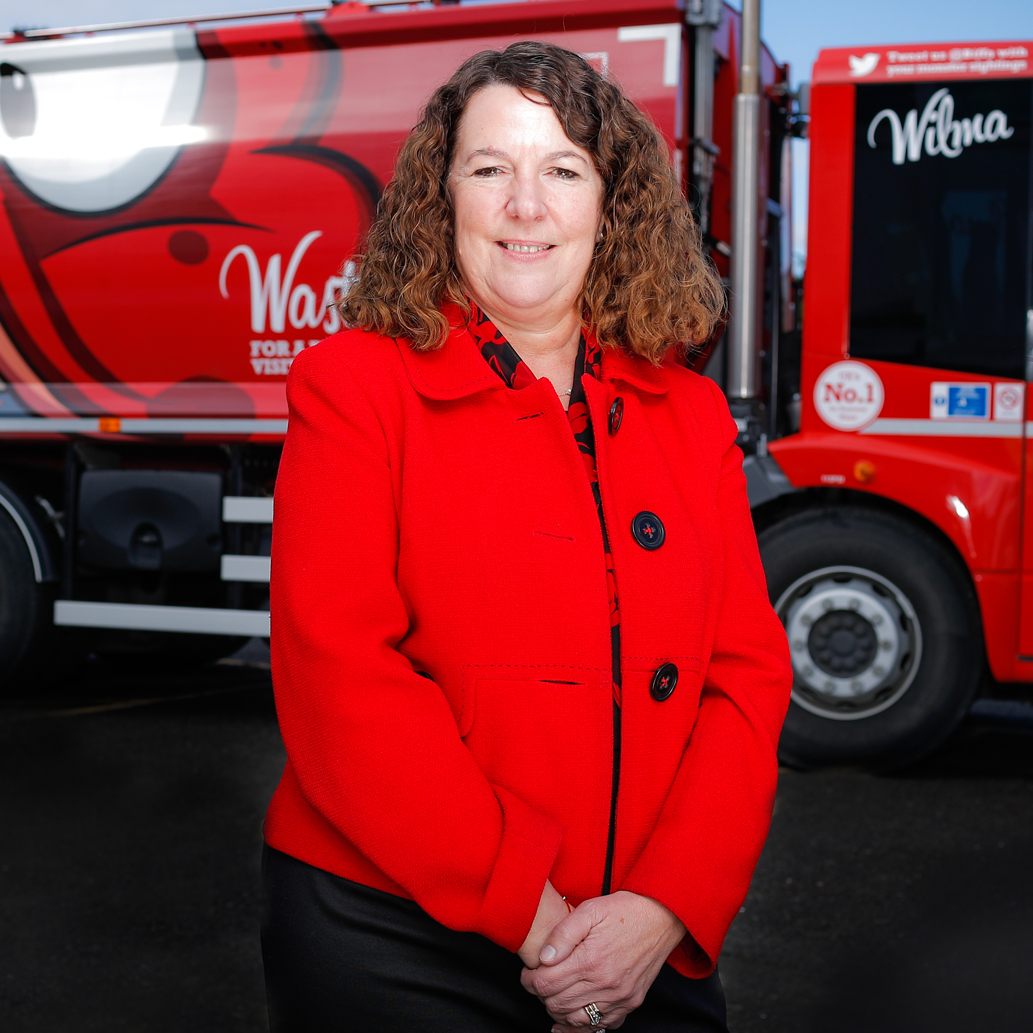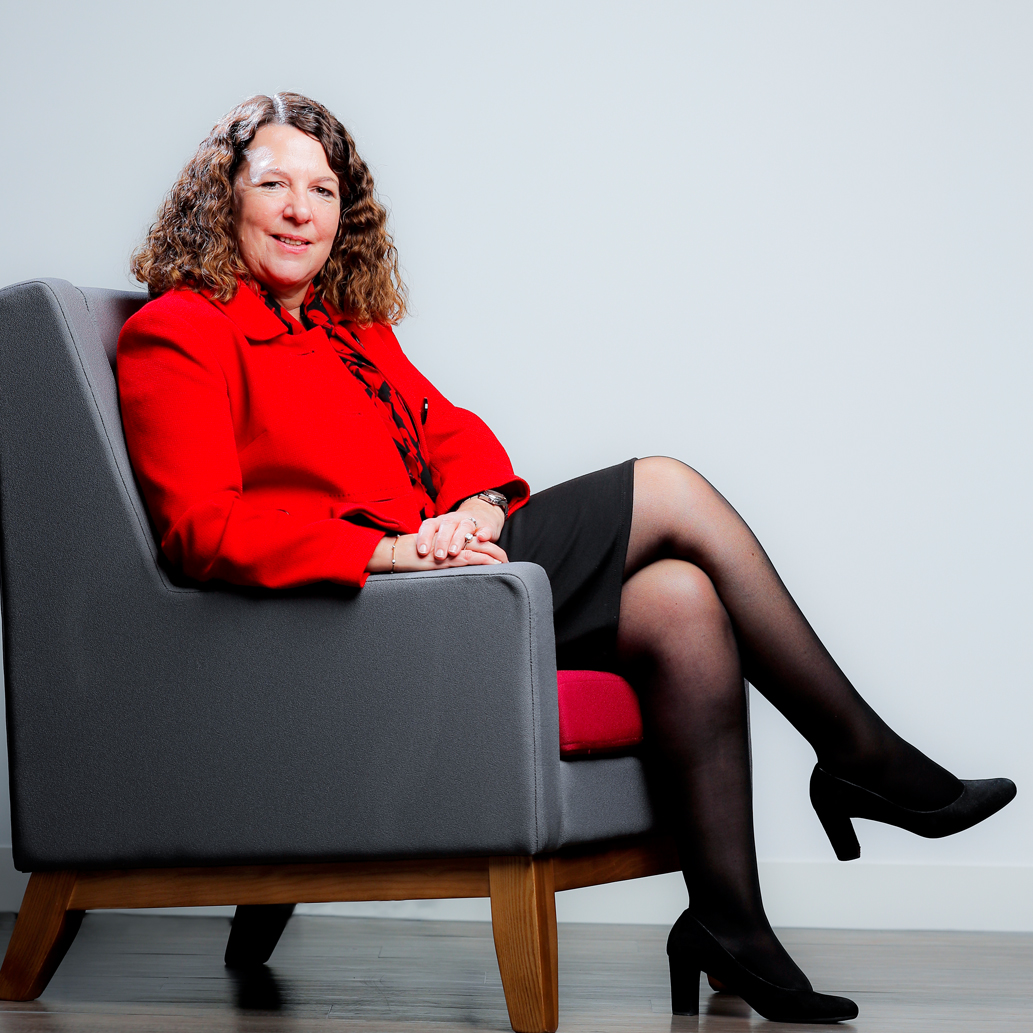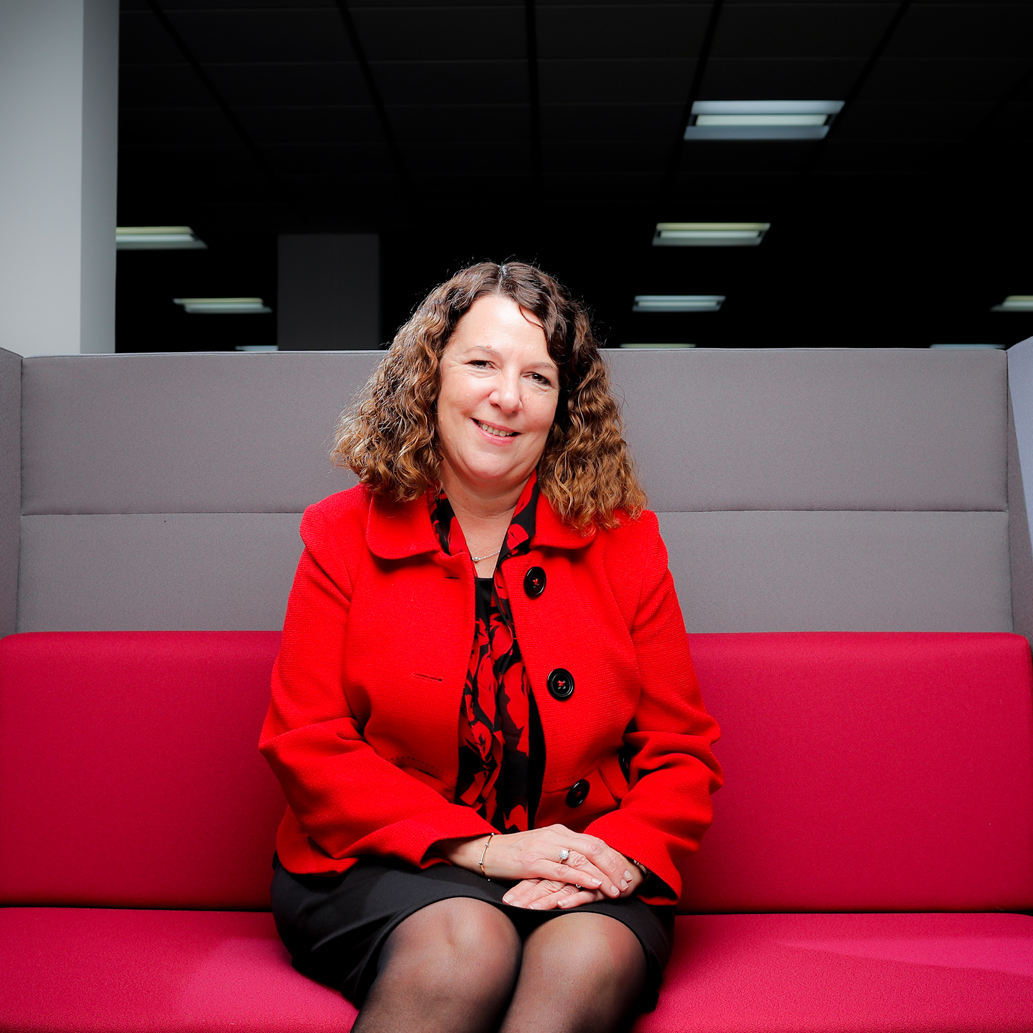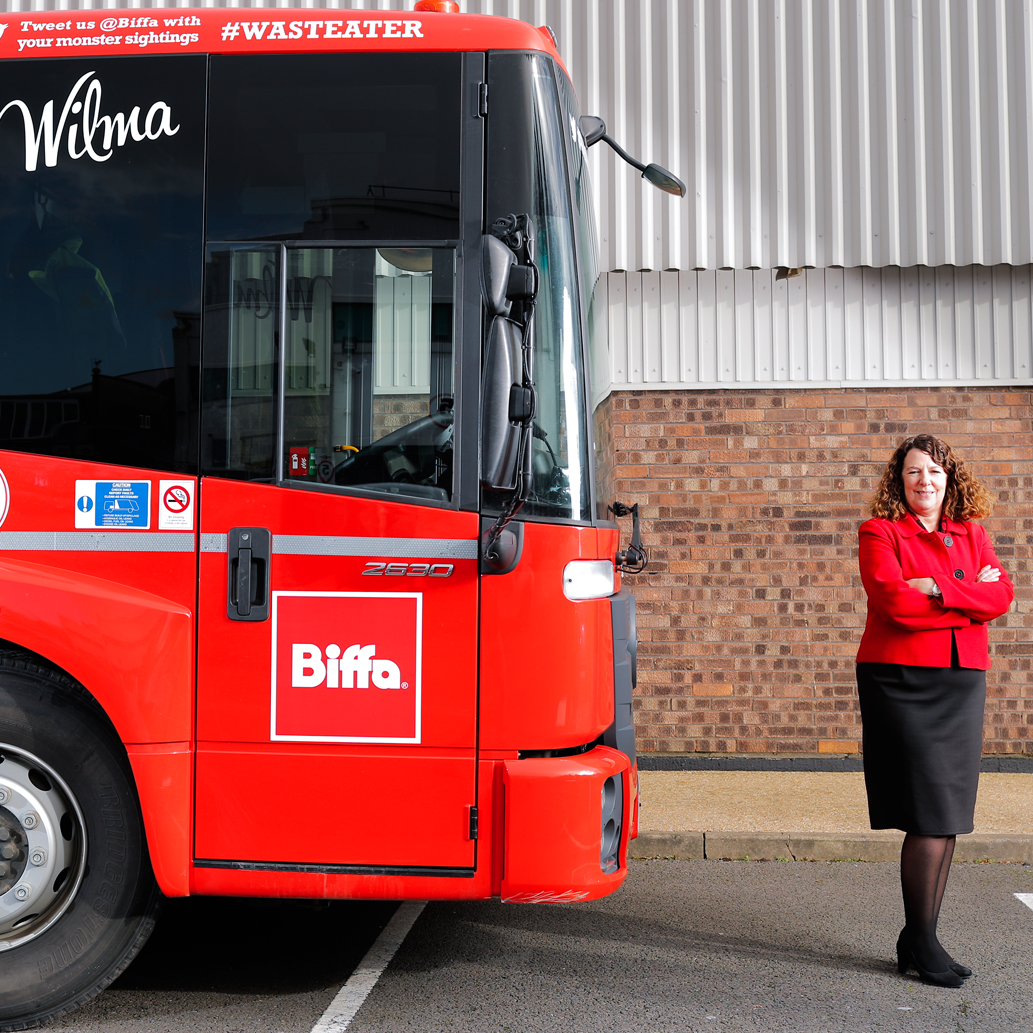Jane, tell us about your early life and career and why you decided on a career in HR.
I left school at 16, took a secretarial course and, at that point, I wasn’t hugely ambitious about a future career at all. So I found myself in a typing pool, then I was secretary in an HR function and liked what I saw, and it was when I had my children that I had time to take stock and think about the future. I decided to study – starting with three A-levels, followed by a degree, and finally my IPD. All in all, I spent ten years, back-to-back, studying – part-time and at night school – with two young children in tow. Then when my youngest was old enough to go to nursery school, I decided to go back to work. I applied for a job at British Gas PLC, which was a “job share” post and, that was it, I was up and running, much more career-minded than I had ever been, joining this huge organisation that was about to change beyond all recognition. The break-up of British Gas was a massive upheaval across the organisation, and my role was primarily involved in restructuring initially, but I experienced a good deal of HR, managing the general disruption and change. It wasn’t long before the job share become full-time and I started to progress and, following the breakup of the regionally-focused former business, I worked in the retail sector – again a massive transition and a major restructure – where I experienced everything from organisational design to setting up a new HR and Payroll system – it really was baptism by fire. So within three years, I had experienced a wide spectrum of disruptive HR and I really began to see HR as more than a mechanised, transactional function, managing and communicating with people with understanding and empathy and could see that well run, authentic and practical HR really was effective in the most disruptive situations. I look back at that time as being a nursery slope of sorts, but a very challenging one.
I guess being thrown in the deep end – inexperienced and naïve – means that you really absorb everything that you see. Indeed, I learned very quickly for sure, and so when it came to gaining my IPD, it was pretty straightforward to demonstrate my experience in key areas. It was a very small HR team in the retail business so there was no hiding place, everybody had to muck in. It was considerable and complicated and we were always under pressure, supporting stressed managers in a business unit that was fighting for survival. It was a learning curve to say the least. You learn about yourself, your capacity to cope with challenge, as well as the capacity for HR to deliver. I became astute at understanding HR as a business role, engaging people, and committing to the duty of deliverance. The retail business was never going to survive, the shops were in the wrong locations with high rent – it was primarily somewhere people paid their bills and once that had gone – and with the advent of the internet and out of town mega stores, the writing was on the wall. I was now part of the Centrica Group and once the closure of Retail was in train, I was asked if I would be interested in doing an experimental project in Leeds for a year, to which I said “yes”. Incidentally, saying “yes” to interesting opportunities has been a recurring theme of my career. An effective one too I think, in gaining different experiences and learning. So to Leeds I went, to set up a lab reviewing and testing HR strategies, as well as customer propositions to address the changing marketplace. There was a focus on call centres and the need to re-focus training with customer-centricity a primary necessity, and I developed the first group-wide customer service package for Centrica. My big gain here was that I managed to cut the training time by half. The systemised way they were learning was slow and it was failing to get across the importance of the “customer”, so we introduced a buddying process, whereby our call centre champions would really demonstrate to them the difference that good call service could make, and that became a gold standard for customer care training across the business. This success was noticed, and I was moved to a more senior role and my learnings from the lab and how we gained the support of the team was invaluable. I was also gaining a reputation as a champion of change, and this would help forge the next stage of my career.
My next role was supporting a major business transformation for Centrica – it included harmonising terms from separate entities of the business and moving from a service-only culture to service and sales, as well as a major systems replacement. There were some big trade union issues to manage too, negotiation on harmonisation of pay, and new ways of working including a requirement for customer service people to sell. That opened the door to a promotion to a senior HR role in British Gas. My previous success of halving training time and delivering financial benefit to the business was memorable and helped me on the way to looking out for commercial opportunities to deliver real monetary value wherever I could. The organisation had issues with absence and attrition at the time and the strategies that we put in place meant we halved that. The last thing I had to do at British Gas, before I went into my next Centrica role was to agree with the trade union that we were going to close the back office processing centres in the UK – believe me that was a difficult undertaking. It impacted on about 3000 people at the time who effectively lost their jobs, and it was a salient lesson in not only delivering what the business needs, but to do what needs to be done with empathy, always treating departing people with respect. As is still the case now, there was a lot of competition in the energy market as well as incredibly low margins, so the cost to serve was key. Like all businesses, you have to keep ahead of the game! The market was consolidating, increasingly competitive and securing union agreement was extremely difficult, but we found our routes forward.
What happened next in your career?
I moved to a very different role in the corporate centre as HR Director to the IS function. This was supporting a professional services area of the business – quite different to the British Gas role, supporting 10,000 people. And so I was moved to that function, which again was going through a major restructure. After a short time there, I was asked to manage HR Shared Services, which we were on the brink of outsourcing. I managed the migration of payroll and HR admin to a third-party provider and the implementation of new systems. It is probably fair to say it didn’t go smoothly initially. Shared Services was all the rage at the time but, at first, there were many challenges. I was constantly in management team meetings, explaining what was happening to business leaders, but persistence paid off and we settled down the new processes and it became a success. It was an interesting role and another learning curve, but my heart was – and very much still is – really with the sharp end of business, and so I didn’t see it as long term. It was at this time that I was headhunted, and it caught me at the point where I realised it was time to move on. Looking back, it was an incredible experience with Centrica, but I felt that it was time for me to take a step up. Little did I know what lay ahead.
The company was a FTSE 250 called Connaught plc. and I joined in June 2009 – almost exactly a year in, a profit warning was issued, and by September 2010, the company was in administration. When I joined, all looked good, but it quickly started to unfold and it was played out in the press every day. The CEO and the CFO stepped down, and then I had to suspend one of the MDs for alleged insider dealings. Each and every day, we were presented with new crisis and, by the time we went into administration, I was the longest standing member of the Executive team and I had only been there 15 months! I spent a lot of time on the phone to the Chairman and there was a team of us developing business recovery plans. We thought we could save the business, but as the scale of the problems manifested, it soon became clear that it couldn’t be salvaged. The positive from a personal point of view was that I learned such a lot about the commercials and finances of big business, not to mention my own resilience. It was a frantic time and it was a real challenge to communicate to our 10,000 people. It was so absorbing, that it was hard to think about sorting myself out and finding a new job. But during my time at Connaught, I met Ian Wakelin, the CEO of a company called Greenstar, a recycling business. Shortly after the Connaught bombshell, Ian called me to say that he was now at Biffa, as their new CEO, which had acquired Greenstar, and there was no HR Director currently, so would I be interested in having a chat? I went through the interview process, and the rest is history! Initially I did wonder if I had jumped out of the frying pan into the fire, because the business was in need of some major surgery.
When I joined in late 2010, Biffa had been in private equity ownership for about two years, and was saddled with significant debts. There had been many waves of redundancy and, up to that point, and HR had been managed by the Legal Director. Morale was rock bottom and I remember a key meeting with the CEO, where the scale of the problem was explained in detail. The situation looked bleak, but from this very low ebb, we developed a plan to rebuild the business. Ian had brought in a largely new executive team, and he and I quickly developed an excellent rapport. From a people perspective, I looked for the positives, in order to gain a grip on what needed to be done to turn things around. One of the great things about Biffa, even then when morale was so low, was the loyalty of its people. They were nervous though, about what the future would hold for them and wary of yet more change and a new management team. Working on the premise that anything that you introduce is an improvement, I set about the most pressing issue, to install some structure and focus on some quick wins. First was the need to communicate with our people and ensure they understood our priorities, the issues and what we were going to do to address them. One of the first things I did was carry out an employee engagement survey to signal to people that we cared about what they thought and how we could make their lives better. The result wasn’t good – only 30 percent of people said they were engaged and over half didn’t bother to fill it in. But it gave us a foundation and pointed us in the direction of the things people really cared about, so at the very least, a good starting point to show people we were listening and taking action.
We introduced an employee newspaper and conference calls with the CEO, so that people could hear first-hand about the business. It was a difficult first year, and we needed to keep focused, because the air was heavy with this morale malaise, and people were telling me they were afraid to look over their shoulder. We developed a business planning process, where we developed a group business plan with five pillars: Working together safely; First choice for customers, Easy to do business with, Building pride and Growing profitably. We built everything onto that, so that every division and function had its own business plan. We implemented performance management, including measurement against desired leadership behaviours, and we completely changed the bonus schemes to align to our business priorities. A year later, we launched our second survey with fingers crossed, and we got the result we wanted – an improvement. Since then, we have been successful in almost doubling our engagement score in six years, which is a tremendous result.
What about the health of the business itself?
Costs and our level of debt needed to be brought under control, and we went through a complete financial restructure, which was successful, and our private equity owners walked away. They had set very tough targets and it was a very difficult environment to work in. Our new owners were much less involved and left us to run the business, so it was a better environment to make the changes we needed to, without constantly asking permission and having to explain. Slowly but surely, we started to build some belief and trust and I think the sudden release from the shackles of the previous regime and equipped with a plan we thought we could deliver, propelled us forward.
The Biffa brand is well known, but explain what the organisation does.
Biffa was a collection and landfill business, but now we are an integrated waste management business. Our business customers range from SMEs to corporates, as well as local authorities, and we have the largest UK footprint, which puts us in a good place to guide and service our clients. As your readers will attest, businesses have been under growing pressure to operate with the environment a core consideration. In terms of CSR, we have the Biffa Award, which funds community causes many of which are local projects around the country. As you say the brand is very strong and, increasingly, we’re working strategically in partnerships, for example with Sainsbury’s, we process their food waste and the electricity produced from that powers their store. So we have the extremes of operating from physical manual work to some jaw-dropping research & development. We have built plants dedicated to the future of recycling, for example, one that recycles polymers – basically your old plastic milk containers and processes them into pellets that then become new food grade products. We won a Queen’s Award for Industry for that innovation. The waste industry is fast evolving, the pressure is on to eradicate landfill waste and to be able to re-process just about everything. It’s about changing perceptions and cultures – you only have to look at the reduction in shopping bags in supermarkets to see that you can change even deep-seated habits.
And what about the Biffa brand as an employer, an attractor of talent?
The retrospective looking Biffa, as a place of work, was a more manual working environment. We still are heavily reliant on LGV drivers – and are rapidly facing an ageing demographic – but the future of the business is increased automation and so this presents opportunities but also challenges. Our Brand though is strong and our successful journey to a plc., makes it attractive. One of our great strengths is our down-to-earth nature and our “can-do” culture. We have managed to secure some great talent recently, but our challenges are around attracting young talent whilst also ensuring we attract the right people with the right customer-focused skills into those core jobs. The waste industry is changing and you can be really excited about the concept of the circular economy which, for the environmentally conscious millennial, has to be a good career prospect. Rather than a scene of seagulls circling above landfills, it’s becoming a more scientific and strategic scene. We are growing, and over the last three to four years, we have acquired a number of businesses that have added new competencies to the business, and brought with them new talent and ideas.
What is the next key stage for HR, in light of the expansion of the business?
We’re serious about improving our game in recruitment, becoming smarter as the competition hots up and fundamentally important is our skills retention and talent management. Right now, we have been working on talent processes and succession planning, which wasn’t even part of the strategy until a couple of years ago – we didn’t have succession for our key roles, and I’m certain we’re not unique in that. We pride ourselves on running a tight ship, we need to have our eye on the ball and keep one step ahead of the competition and what is going on around us. The recent press around manufacturers using plastics mostly for food packaging has drawn attention to what we can and cannot recycle and part of this is education. Some of it will lead to changes in the industry, to drive innovation to resolve the issues. The great thing is, even as we grow, the business is agile, and we can react quickly – it’s a very down-to-earth place to work. The HR team is motivated and we have been highly commended in awards. In terms of the KPIs we have increased our engagement score year on year and the pressure is now on to keep the momentum going, be sharp eyed for potential acquisitions, and our speed to bringing new businesses in and enveloped in our culture. In terms of growing our own skills, the technology in the sector is changing all the time and we are constantly evolving our learning and development proposition, which I believe is key to engagement and managing attrition.
Do you think the business is road-ready for the future, whatever comes your way?
Technology is evolving fast, and whatever your business and sector, you’re always mindful of the stories of companies like Blockbuster or Kodak holding on to the way of operating that have made them dominant in their markets, only to be caught in the headlights of change. For that reason, we’re building entrepreneurialism into the teams – it’s such a compelling and dynamic environment when people are constantly coming up with ideas on how to improve things, even completely new initiatives, and that’s right across the business. When a business has momentum, it’s a great place to be and, in my book, constant change and disruption is very healthy, because you never have time to become lazy and complacent.












